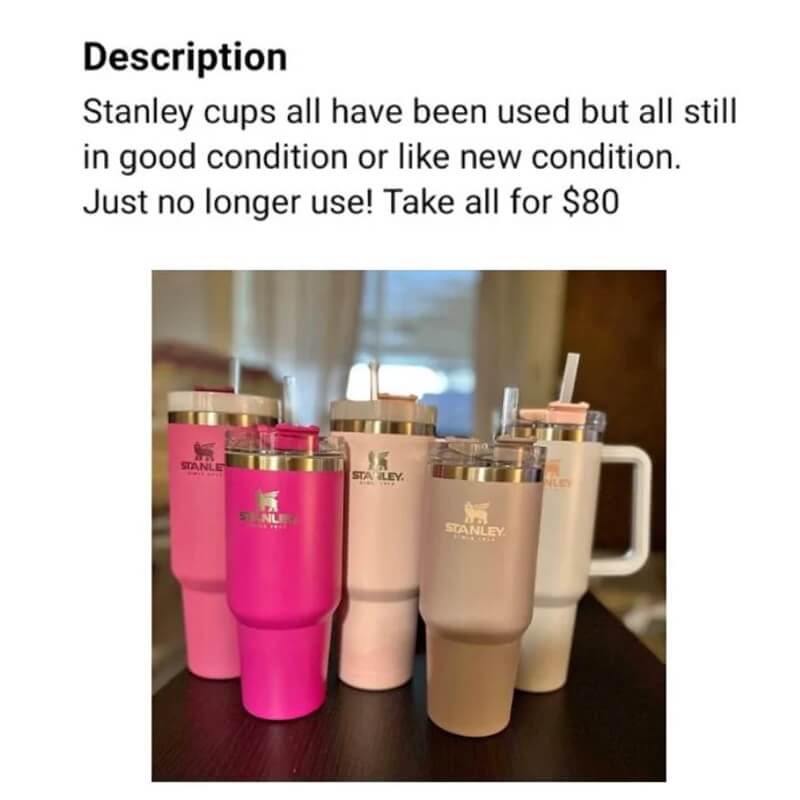Part of what makes crazes and fads what they are is that they come and they go. But the aftermath might often be more problematic than you'd think.
One Redditor went to r/Anticonsumption after coming across a resale listing that really got some gears grinding.

The photo shows five Stanley tumblers, all in perfectly good condition, for the asking price of $80.
"The Stanley hype is over already?" the original poster wrote in the caption.
At the peak of the craze, Stanley cups were going for over a hundred dollars a pop when the retail price was anywhere from $35 to $55.
The demand sparks overproduction, which puts stress on materials, packaging, and transportation — all of which negatively impact the environment by creating excess pollution.
When that demand disappears, companies and stores are left with an overabundance of product that may never get purchased, or if it does, it may never get used enough to justify those production resources.
The idea behind tumblers and hydro-flasks is to provide a reusable water bottle and reduce single-use plastic. Using one saves hundreds of dollars — easily $5 per week, which is $260 per year — and keeps plastic out of our landfills.
If that's not incentive enough, scientists analyzed plastic bottled water and found an alarming number of contaminants from the packaging. So not only do glass or stainless steel reusable water bottles reduce trash and save money, but they're also healthier for you.
However, there is truth to the idea that there can be too much of a good thing. One or two reusable bottles are all you need to reap the benefits. Anything more than that is overconsumption, which wastes money and creates unnecessary demand.
The post was greeted with collective annoyance. There was also debate on collectibles versus fad crazes.
"Soon there will be a new craze," one Redditor said. "People will never learn."
Another wrote: "The hype trend is getting shorter every cycle. I blame fast fashion."
"Collecting is just hoarding with a theme," said a third.
Join our free newsletter for easy tips to save more, waste less, and help yourself while helping the planet.









